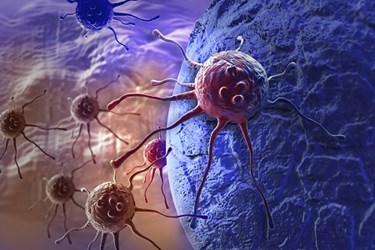AB SCIEX, Dalton To Develop New ADC Analysis Methods

AB SCIEX and Dalton Pharma announced they will collaborate on the development of a new comprehensive method for analyzing Antibody-Drug Conjugates (ADC) with hopes of bringing more biological oncology therapies to market.
In recent years, oncology research has been moving away from chemical cancer therapies and has been exploring safer and more effective biological methods of targeting cancerous cells. Scientists hope that by using antibodies, therapies that mimic or enhance the capabilities of the human immune system, they can develop targeted cancer treatments that are far less destructive to healthy tissue. So far, the success of these antibody treatments acting as a single agent has been limited.
ADC’s combine biological antibody delivery systems with potent chemotherapy drugs, an approach that hopes to use the advantages of both the chemical and biological methods to target and destroy cancerous cells while leaving surrounding healthy tissue relatively unaffected.
ADC’s are one of the fastest growing markets in oncology research and therapy, and there are over thirty clinical trials currently underway, with hundreds more in the works. So far, the FDA has approved only two: Seattle Genetics’ Adcetris and Roche’s Kadcyla.
Though the premise of the technology seems straightforward, researchers have had technical challenges in manufacturing a consistent product. AB SCIEX and Dalton’s collaboration hopes to provide a more definitive method for the identification of drug loading and the position of conjugation on macromolecules.
According to Tan Quach, Chemistry Manager at Dalton: "A key challenge for developing successful Antibody-Drug Conjugate medicines is understanding the structure and payload of the final molecule. Determining where the drug attaches to a particular antibody early in its development and the number of drug molecules on the antibody are important indicators of the likely success of a new ADC.”
Chris Radloff, VP, LC/ MS Business at AB SCIEX is optimistic that the collaboration will yield an effective and accurate service to develop ADC technology and expedite their move onto the market.
According to Radloff: “Utilizing these molecules is difficult and by forming this partnership, ADC developers can now reduce complications, and obtain accurate results that will ultimately lead to safer, more effective therapies.”
